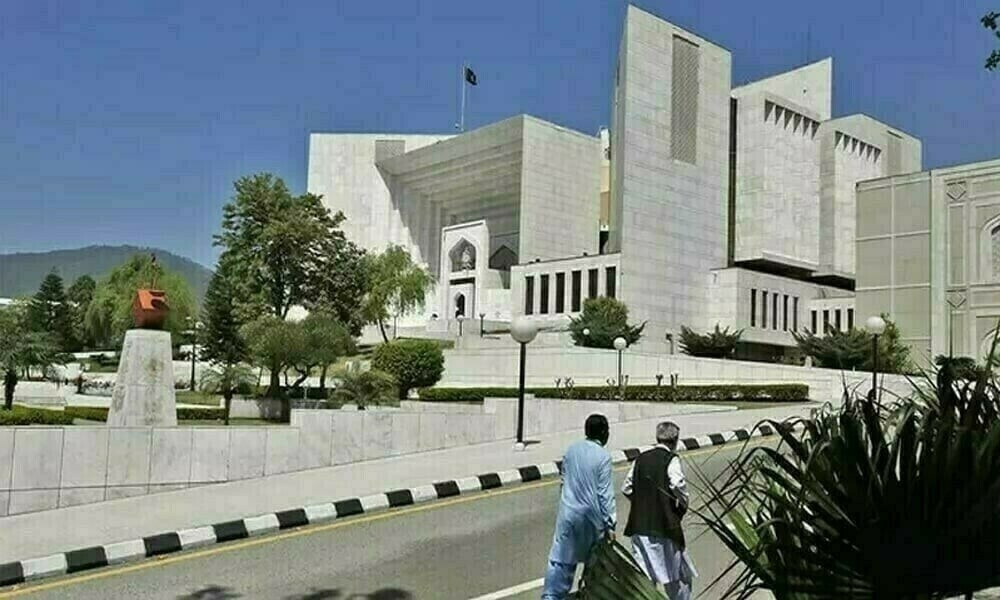An eight-member Constitutional Bench of the Supreme Court has recommenced hearings on a series of petitions contesting the 26th Constitutional Amendment.
The amendment was ratified by Parliament during an overnight session last October, a process mired in controversy. The Pakistan Tehreek-e-Insaf (PTI) party alleged that seven of its lawmakers were abducted to secure their support for the legislation, which the party opposed. Similarly, the Balochistan National Party-Mengal (BNP-M) claimed that two of its senators faced pressure and subsequently voted in favor of the changes, contravening the party’s stance.
This legislative change, which modified judicial authority and tenure provisions, has sparked intense debate. Opposition parties and legal experts have raised concerns about its potential impact on the judiciary’s independence. Key alterations included stripping the Supreme Court of its suo motu powers, fixing the Chief Justice of Pakistan’s (CJP) term at three years, and empowering a Special Parliamentary Committee to appoint the CJP from among the three most senior judges. The amendment also legally enabled the formation of the very Constitutional Bench that is now adjudicating the petitions against it.
The bench, presided over by Justice Aminuddin Khan, includes Justices Mazhar, Jamal Khan Mandokhail, Ayesha Malik, Syed Hasan Azhar Rizvi, Musarrat Hilali, Naeem Akhtar Afghan, and Shahid Bilal Hassan.
During today’s proceedings, petitioner Muhammad Akram Sheikh—a founding leader and former president of the Supreme Court Bar Association (SCBA)—commenced his arguments.
He follows other counsels, including Hamid Khan of the Lahore High Court Bar Association, Munir A. Malik for the Balochistan High Court Bar Association, Barrister Salahuddin Ahmed, and senior lawyer Abid Shahid Zuberi, who have already presented their cases. These petitioners have sought the formation of a 16-member full court, reflecting the number of judges on the Supreme Court when the amendment was passed in October 2024. Judges have questioned whether the Constitutional Bench holds the authority to issue orders for constituting a full court.
At the hearing’s outset, Justice Mandokhail inquired if Sheikh was representing other petitioners, to which the senior advocate clarified he was appearing only on his own behalf. After Justice Mandokhail noted that Sardar Latif Khosa was listed as Sheikh’s counsel, Sheikh sought the bench’s permission to present his arguments personally, asserting his right to do so.
Justice Aminuddin then directed the question to Sheikh, asking him to outline a “constitutional path to form a full court.” The judge remarked, “We are bound by our oath. So far, not a single lawyer has presented their arguments as per the Constitution. One sahib also said to keep the Constitution aside.”
When Justice Aminuddin asked Sheikh to define a full court, the latter dismissed the query as a “futile debate.” Departing from previous requests for a “pre-Amendment” full court, Sheikh instead called for a bench comprising all 24 current Supreme Court judges.
He asserted, “This Constitutional Bench cannot hear this case.” Justice Aminuddin noted the logistical question of how to include a “non-Constitutional Bench judge” in the proceedings. Justice Mandokhail followed up, asking, “Are you saying that even if there are 24 judges, it should not be called a Constitutional Bench but the Supreme Court?”
Labeling the 26th Amendment “controversial,” Sheikh stated, “Not even any of the dictators dented the Constitution as much as the 26th Amendment did.” He contended that the judges on the current bench had dual roles, one of which was “controversial,” and expressed his hope that they would find the “courage to strike down this Amendment.”
Sheikh argued that the eight-member bench was ineligible to nullify the 26th Amendment because it was constituted under the authority of that very legislation. He cited the established legal principle that a smaller bench cannot reverse a ruling made by a larger one.
In response, Justice Mazhar urged arguments based on the “new circumstances,” noting, “The Constitutional Bench has been formed.” He posed a critical question to Sheikh: “You say that this Constitutional Bench cannot strike down the 26th Amendment as it would be a conflict of interest. On the other hand, you say that a full court comprising all 24 judges should be formed. Will that full court of all 24 judges not have a conflict of interest?”
The court’s composition was expanded in February with the elevation of six new judges: Justices Muhammad Hashim Khan Kakar, Muhammad Shafi Siddiqui, Salahuddin Panhwar, Shakeel Ahmad, Aamer Farooq, and Ishtiaq Ibrahim.














